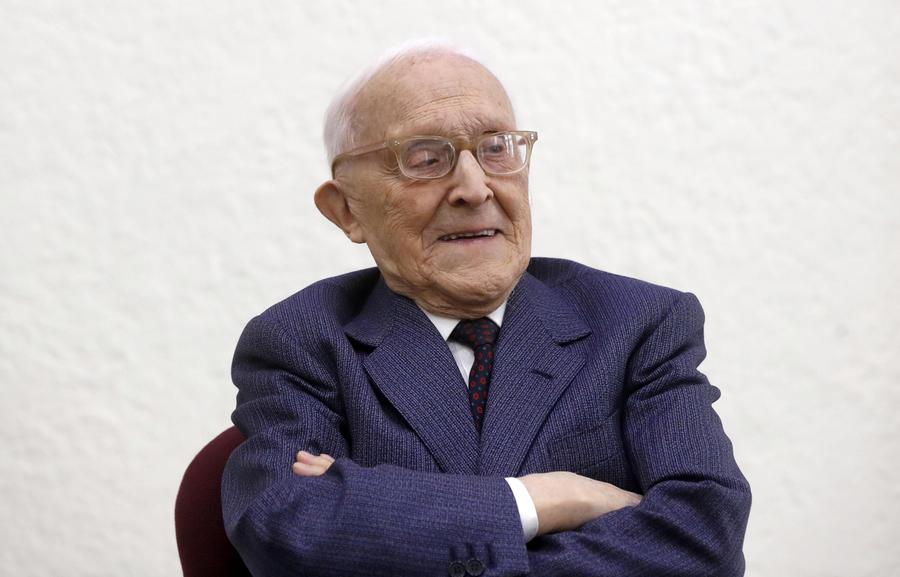Sergio Lepri, 102, historical director of ANSA
(he led the agency for almost 30 years, from 1962 to 1990), died.
He began his adventure in journalism by directing the clandestine newspaper of the Liberal Party in Florence between 1943 and 1944.
"Making a newspaper and distributing it in those days meant risking your life", said Lepri on the occasion of his 100th birthday, recalling the years of the Resistance as "a formative period for a part of my generation".
Then the experience at the Giornale del Mattino in Florence, after which he, a layman, was the spokesman for the Christian Democrat Amintore Fanfani as Prime Minister, before joining ANSA.
Look at the photos
Sergio Lepri, a life for journalism
Born in Florence on September 24, 1919, after joining the Resistance by joining the Action Party and then the Liberal Party in 1944, he is already director in his city of the clandestine newspaper of the Liberal Party '. In 1945 he was editor of the newspaper La Nazione del Popolo, organ of the Tuscan Committee of National Liberation, then editor-in-chief of the Florentine Giornale del Mattino, the newspaper near Fanfani, for which he was then a special correspondent in the United States and in the Soviet Union and then correspondent from Paris. But above all from 1961 to 1990 he was the managing director of ANSA where every editor has a particular memory that binds him to him, always available but at the same time granite in its integrity.
Everyone remembers, starting with the director Luigi Contu, that the first thing Lepri asked for was the defense of pluralism and objectivity: `` I don't want to understand who you vote for from what you write '', he said to everyone when he was hired. .
Divide facts from opinions.
'' The privilege of serious journalism is not to take sides. I got into journalism at the end of the war. Young people like me decided to be a journalist because it was a tool to enrich everyone's information assets. An instrument of knowledge, democracy and freedom, as a service '', said Lepri. And his second inexhaustible streak was precisely that of teaching, which he practiced with the energy and optimism with which he skied until a few years before becoming a centennial. From 1988 to 2004 he taught 'language of information' at the High School of Journalism of the Guido Carli Free University of Social Studies (the Luiss). He has written numerous books, many of which have an educational imprint and have trained several generations of journalists.Author of a historic manual, Lepri has always maintained that "journalists become one", as long as they have "curiosity to know and critical analysis skills".
In 1999 the first edition of 'Journalist profession' started from this question to draw up what became the basic manual for several generations of young professionals. Of course, the answer was that one becomes a journalist by studying, working, gaining experience and also acquiring the technical and deontological knowledge that Lepri expounded with extraordinary clarity in his book. The first edition was about computers, but could not examine all the implications of multimedia. Lepri, from the top of its past century, has always also boasted the title of innovator. For example, the first digital news archive, the first in Europe, was born from his intuition. '' It was the seventies and that million pieces of news were piling up like paper on the shelves:now everything is on a mobile phone. In the space of a few decades, everything changed. ANSA was the first agency to have an electronic archive, '' he recalled. '' The information has changed - said Lepri on the occasion of its 100th anniversary - because the tools have changed. New technologies have been a great way to improve information. '' And this says it all about him, a man who had the future in his DNA. Thanks manager!And this says it all about him, a man who had the future in his DNA. Thanks manager!And this says it all about him, a man who had the future in his DNA. Thanks manager!

